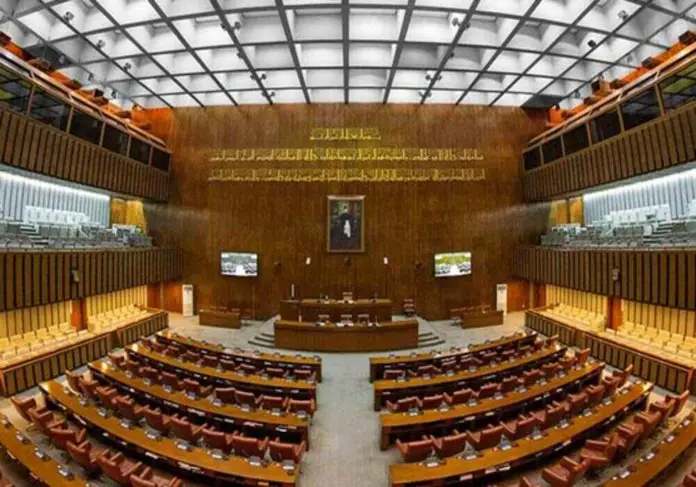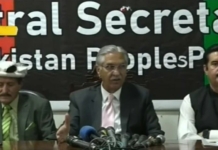The Senate of Pakistan has given its approval to two bills – the Elections (Amendment) Bill 2022 and the National Accountability (Second Amendment) Bill 2021 – on Friday.
The two bills had been passed in the National Assembly on Thursday and were aimed at reversing the changes made to election laws by the Pakistan Tehreek-e-Insaf government and reducing the powers of the National Accountability Bureau.
On Friday, the two bills were put forth in the upper house by Parliamentary Affairs Minister Murtaza Javed Abbasi and Law Minister Azam Nazeer Tarar respectively.
The president’s assent is now required for both the bills for them to become acts.
In the Senate today, Tarar stated that the Election Commission of Pakistan had been asked to make sure that voting rights were given whilst assuring secrecy.
Meanwhile, Opposition Leader in the Senate Dr. Shahzad Waseem said that the opposition would not allow anyone to steal the right of voting from overseas Pakistanis or undermine the use of electronic voting machines.
The session was marred by slogans of “imported government” and “no to NRO” by the opposition.
Election amendments
Under the amendment to the Election Act of 2017, the Election Commission of Pakistan may carry out pilot projects for voting by Pakistanis based abroad in by-elections to gauge the efficacy, secrecy, security and financial feasibility of such voting.
The ECP may also carry out pilot projects for the use of EVMs and biometric verification systems in the polls.
Amendments to NAB law
According to the amendment sought to NAB Ordinance 1999, the current chairman of the accountability watchdog retired Justice Javed Iqbal would not be able to continue in office as the clause for his extension in the earlier bill was removed.
The deputy chairman would become the acting chairman of the bureau following the completion of the term of NAB.
The bill also seeks NAB’s capacity to act on federal, provincial and local tax matters while regulation has been removed from its domain.
NAB officials have also been stopped from making any statement in public before the filing of references and the investigation. A violation in this regard would result in imprisonment for one year and a fine of a million rupees.
Moreover, the punishment for filing a false reference has been suggested to be set at five years.
In addition, the new law seeks a three-year term for the judges of the accountability court. It will also bound courts to make a decision in one year while NAB also has to ensure that evidence is available against the one accused before their arrest.
The power of the accountability watchdog to keep a person on remand has been reduced to 14 days.







